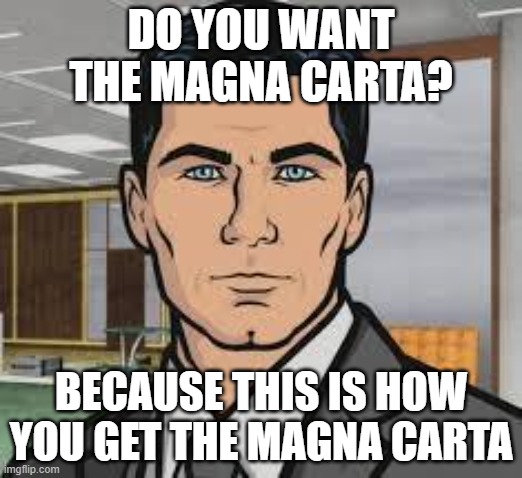
Look, no matter what Starship told us all back in the 80s, you can't actually build a city on rock and roll. Fortunately #AdamSmith is here to help. (with Hume in the background on synthesizer, we suspect.)
The first inhabitants of cities were traders and craftsmen who were particularly put upon before cities developed. You can tell by the kinds of things they consider privileges (deciding who their kids marry! deciding who inherits! 🤯) (III.iii.1) #WealthOfTweets #SmithTweets
Because they were probably itinerant peddlers and workers before they settled in cities, they were taxed for passing through lands, or crossing bridges, or setting up a stall to sell goods. Or whatever else someone could dream up. (III.iii.2) #WealthOfTweets #SmithTweets
Some traders got exceptions from those taxes from their local lords and that seems to have been enough to inspire the beginnings of towns. Who knew it was that easy? (III.iii.2) #WealthOfTweets #SmithTweets
Once you had the beginnings of a town, you had the beginnings of individual freedom—particularly from the King’s tax collectors. (III.iii.3)
#WealthOfTweets #SmithTweets
#WealthOfTweets #SmithTweets
We've said it before. It's #WealthofTweets, not #TweetsOfMoralSentiments, but here's that How X soever Y construction again! (III.iii.3) #WealthOfTweets #SmithTweets.(III.iii.3) #WealthOfTweets #SmithTweets
(Should we do #TweetsOfMoralSentiments when we finish #WealthOfTweets?)
While the earliest freedoms began as personal privileges, they soon extended to all occupants of the town. That’s huge. And it’s where we get the phrase “Free Trade” which meant the ability to trade without additional taxation. (III.iii.4–5) #WealthOfTweets #SmithTweets
Town dwellers secured other important freedoms—the right to a town government, to build a wall for defense, to set a watch...these "privileges" made them more independent than serfs who worked the land. (III.iii.6) #WealthOfTweets #SmithTweets
[We, the SmithTweeters, have a great and eccentric affection for walled towns. Do you suppose Smith was thinking of Glasgow’s @AntonineWall when he wrote this?] (III.iii.6) antoninewall.org
#WealthOfTweets #SmithTweets
#WealthOfTweets #SmithTweets
It’s really surprising, says Smith, that kings would just give away this kind of power! Veryout of character for kings. But remember how hard it was to rule stuff back then and how annoying the ruled people can be if you're the king. (III.iii.8) #WealthOfTweets #SmithTweets
Giving the townspeople liberty also made them more loyal to the king. So the worst kings (and Smith is NOT shy about naming names, folks) gave the most liberty. (III.iii.9) #WealthOfTweets #SmithTweets 

[We are no longer surprised, Dr. Smith, at your knowing so few good kings. We rather wonder now at your knowing any.] #JaneAusten (III.iii.9) #WealthOfTweets #SmithTweets
Some of these cities became so strong that they became independent republics. This explains Switzerland and Italy. (III.iii.10) #SomethingMustExplainSwitzerlandAndItaly #WealthOfTweets #SmithTweets
Because cities were safer and freer and investments were protected, people improved them with conveniences and luxuries. Like Starbucks. (III.iii.12) #WealthOfTweets #SmithTweets
Smith gives a shout out to order, good government, and security (peace). Once again, Canadian SmithTweeters say this is The Stuff. And Dr. Smith agrees. (III.iii.12) #WealthOfTweets #SmithTweets
Look at how subversive the laws protecting inhabitants of the towns were to the lordly powers: if someone "could conceal himself [in a town] from the pursuit of his lord for a year, he was free for ever." (III.iii.12) #WealthOfTweets #SmithTweets
And because cities are on navigable waterways (Well, they were. Smith didn’t know about Indianapolis. It hadn’t been invented yet.) they could bring those luxuries in from places much farther away than just the surrounding towns. (III.iii.13) #WealthOfTweets #SmithTweets
[Smith would have loved him some railroads. And container ships. And air freight. Can you imagine? I mean, when he’s talking about the cost of carriage, there are sometimes actual carriages involved!] (III.iii.13) #WealthOfTweets #SmithTweets
Anyway, all that trade with faraway places is why city dwellers are always so darned fancy. You don’t get a “four story fully immersive coffee experience” in Paducah. (III.iii.16) stories.starbucks.com/press/2019/sta…
#WealthOfTweets #SmithTweets
#WealthOfTweets #SmithTweets
As markets for fancy foreign goods develop in cities, local manufacturers see an opportunity to make their own goods to compete with imports. That’s where #hipsters come from! (III.iii.17–18) #WealthOfTweets #SmithTweets
The 18th century had hipsters. They just didn't call them that. They liked coffee and expensive shoes and annoying the middle aged. buzzfeed.com/sludgepunkslim…
#WealthOfTweets #SmithTweets
#WealthOfTweets #SmithTweets
All that production, even if you do end up with hipsters, produces wealth for town and country. It works out just like Smith said in ch. 1. (It's why this part of the book feels a touch repetitive. But we don’t mind, because he’s right.) (III.iii.20) #WealthOfTweets #SmithTweets
• • •
Missing some Tweet in this thread? You can try to
force a refresh


